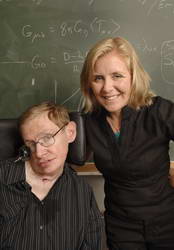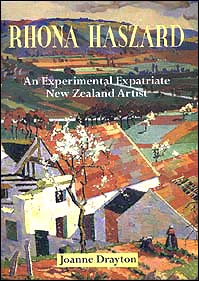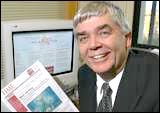By Jim Anderton – Published by Random House, 1999
Reviewed by Bob Bargh – 27/10/00
From the beginning Pakeha New Zealanders have struggled to establish and define a national identity for themselves. Throughout our history this quest for a defining construct has challenged the creativity of New Zealanders working in arts and crafts. Some of these identifying values belong to all humanity, and Unsung Heroes deals with these as well as our own particular brand of courage and determination. People in this book share an inner integrity, a respect for the truth, and last, yet first, a concern for the individual and collective well being of others for whom they feel a responsibility.
Increasing emphasis on individual rights in the last two decades At the time when those represented in the book were performing their heroic acts, New Zealand was developing a strong sense of social justice and they were part of that process. Unfortunately over the past two decades there has been an assault on the emergence of our own particular, special cultural values which were being based on the natural justice and decency of an egalitarian society. Lately that burgeoning collectivisation of the nation has been replaced by an overwhelming thrust towards the transcendence of individual rights. This has been accompanied by an acceptance that citizens may be indifferent to the plight of others, particularly those relatively disadvantaged and in need.
Governments influenced by financial pressures Concurrently and in conformance with this doctrine, which has become an ideology or creed, the leadership and successive governments, even parliaments, of the country have served the financial interests here and overseas, placing their insatiable demands ahead of the needs of the people of New Zealand.
New Zealand society becoming like nineteenth century England Thus we are returning to the type of society which existed in nineteenth century England. Ironically this is the type of society many of our forebears sought to escape by moving to New Zealand. Thus the potential for a truly decent society has eluded us.
The unsung heroes worked for a truly decent society The character of the outstanding Maori and pakeha figures in Unsung Heroes reminds us of that potential and how it was being realised in important individuals belonging to our past history.
All ‘establishment’ figures, both in Britain and New Zealand, fare badly in these accounts. It is defiance of the establishment, which binds together the people represented. Colonel Milone defied the British command in Gallipoli to protect his men. Justice Mahon defied the executives of Air New Zealand to reveal the true reasons for the tragic crash in Antarctica. Ettie Rout defied the establishment. John Mulgan remained loyal to his Greek comrades as opposed to the devious, class-obsessed, British Establishment. Wiremu Tamahana struggled with the authorities. They all struggled for real justice as opposed to a perverted travesty of justice, which so often is the controlling factor when it is based on privilege and class.
Heroism independent of race and gender The presence of two Maori and three women in this book confirm that heroism is independent of race and gender. The Maoris in particular were victims of careless and sometimes brutal administrations. The Maoris may have been prepared to overlook the diminution of their culture and the injustices they have suffered had New Zealand developed an attractive, inclusive culture.
Anderton an unsung hero Betrayal by the Government of a large section of New Zealand’s population became overt under Muldoon and that betrayal darkened, deepened and intensified under the Lange, Palmer, Moore, Bolger, Bolger/Peters, Shipley/Peters and Shipley/Kopou administrations. The outcome was that decent New Zealanders found themselves living lives of quiet desperation in the knowledge that mean-spirited global materialism had become the country’s motivating imperative. These Governments quite openly served overseas and local financial and corporate interests at the expense of ordinary New Zealanders and their dependants. Jim Anderton was an unsung hero resisting this flood tide which has so adversely affected the values of the country’s citizens, values which, until this change, had been developing towards a nation of people who cared for one another.
Unsung heroes serving others Naturally the people in the book, by the very quality that makes them outstanding, do not seek heroic status. That motivation would have been totally alien to their principles. All were dedicated to the service of others, to integrity, and hence all provide models of what we should be encouraged to value as New Zealanders and what most New Zealanders yearn for.
George Eliot concludes Middlemarch with a comment which reflects something of the tenor of Unsung Heroes. She writes, "The growing good of the world is partly dependent on unhistoric acts, and that things are not so ill with you and me as they might have been, is half owing to the number who lived faithfully a hidden life, and rest in unvisited tombs". These are the cohorts of the Unsung Heroes.
We need more books such as Unsung Heroes to remind us of the values that presently we seem to have lost and to encourage New Zealanders, particularly the young, to examine our history because in today’s materialistic world we need the inspiration of those who have gone before us.



